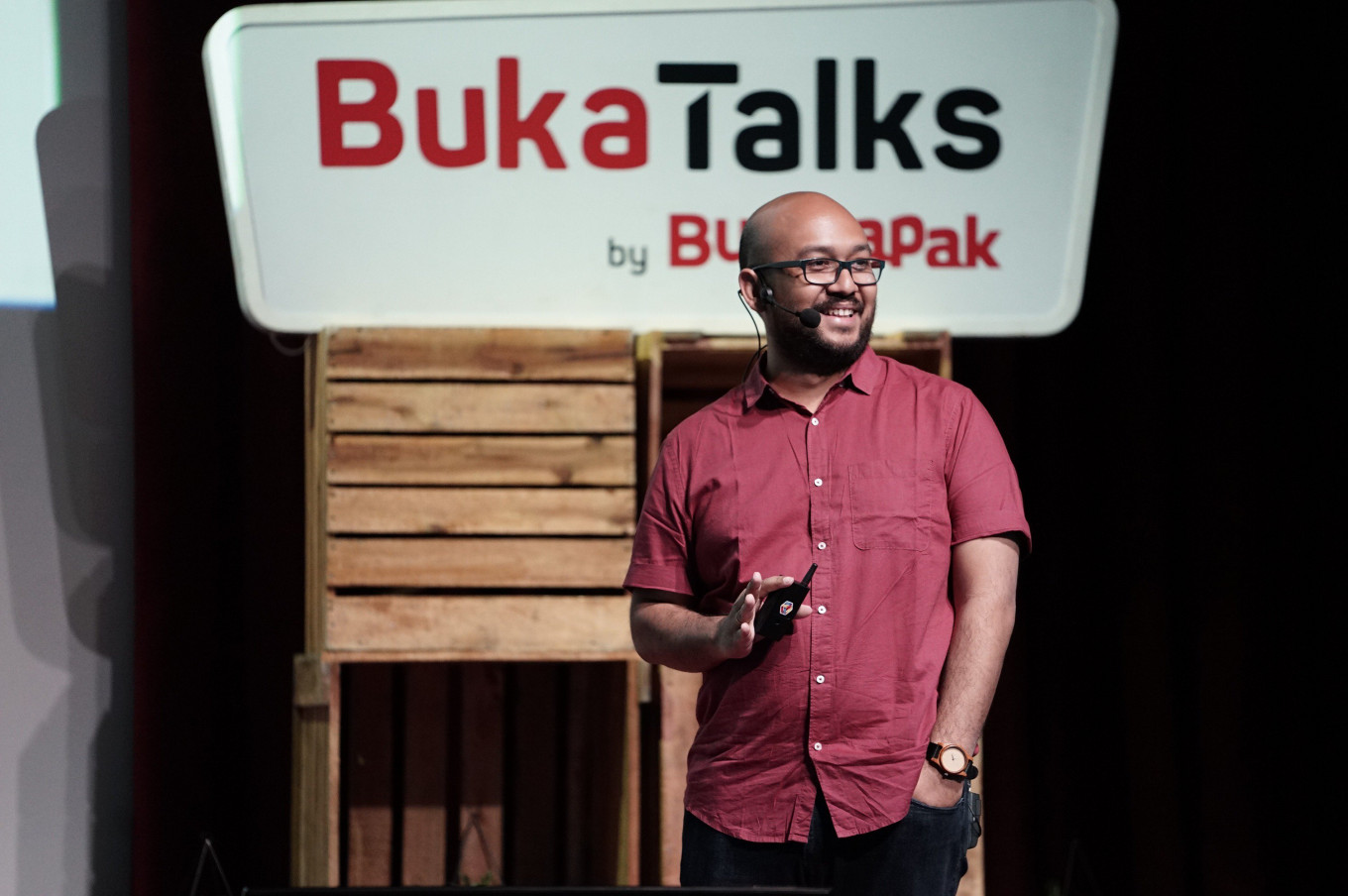Popular Reads
Top Results
Can't find what you're looking for?
View all search resultsPopular Reads
Top Results
Can't find what you're looking for?
View all search resultsWhat I’ve learned: Arief Aziz, relentless reformer
Arief Aziz looks at the world through an ever-evolving philosophical lens to better understand how to solve some of the biggest problems facing society today.
Change text size
Gift Premium Articles
to Anyone
‘What I’ve learned’ is a new column that presents candid interviews with policymakers, artists, activists and businesspeople on facing challenges and making a difference.
Arief Aziz is the director of the Paloma Sjahrir Foundation. Before that, he was the cofounder and country director of Change.org Indonesia for almost 10 years, as well as the cofounder of TEDxJakarta.
Arief Aziz looks at the world through an ever-evolving philosophical lens to better understand how to solve some of the biggest problems facing society today. The following are excerpts from an interview he gave to The Jakarta Post.
I don’t consider myself an activist. I don’t think I deserve the title. I do however make it my mission to serve and help people on the front lines, dedicated to creating meaningful change. And what a lucky position that is. I get to have a front seat and even be part of these social movements.
What I've learned is, what differentiates changemakers from other people is not their intelligence or even how much they care; it's their agency. These people read the news differently than the rest of us. Sure, they also feel angry about it, but they also believe that people have tremendous power to change things. So, they do something.
A story I tell often is about a person rejected from opening a bank account because he was blind. He was entitled to be angry and feel betrayed by the ever technologically evolving banking industry for still not having the solution to serve the blind. But he didn't stop there. He spoke up and organized around it. It wasn't your typical viral news moment, but with just thousands of online supporters, he made this huge bank and possibly others change their policies and made it easier for the blind to bank.
I like the term pragmatic altruism. I try to keep that word in mind every day when working on social change. To stay within the corridors of those two elements is quite tricky. You don't want to be too compromising, sacrifice your ideals and not speak truth to power. On the other hand, you don't want to fall into self-righteousness, contrarianism and elitism, refusing to work with anyone who's less than ideal.
And in a world where clicks are becoming more and more of a currency, and even a matter of survival, it's easy to get lost in the world where people get "destroyed" or "schooled". It can risk echo chamber, polarization, hopelessness or worse: apathy. We need to do both, speak the truth and be effective. That's why it's so difficult.
We loved it when campaigns we assisted succeeded. But we also had a lot of losses. I think change is not meant to be easy. And some changes are harder than others. That can be really discouraging. This is when I draw wisdom from a dear friend and a mentor, Usman Hamid. He tells the story of being at a rally for human rights victims. As usual, these things are rarely crowd pullers. But one of them said to him, "We know this is a long and improbable fight, but it's nice to know some people are willing to stand beside us.” When our hope tank is low, we draw energy from knowing that people don't feel alone in their fight, however improbable it is.
My favorite book is the Hitchhiker's Guide to the Galaxy, speaking of improbability. I think Douglas Adams was a genius. In it, there's a torture device called the Total Perspective Vortex. The victim would be put in a chamber and be shown the entire spacetime continuance that is the universe, and a small dot that says "you are here". This would then destroy the victims mind and crush their soul. It's a comedy.
I love this idea, though. And I don't think it would be torturous at all. Everyone should be subjected to this. It's like Carl Sagan's cosmic calendar, right? If you put the age of the universe, 13.8 billion years in a year's calendar, earth only shows up in September, multicellular life in early December, the T. rex on Dec. 29, the dinosaurs’ extinction on the next day. Humans exist on the evening of the last day of the year, the industrial revolution in the last second, and a human life is a mere 0.2 cosmic seconds.
What a perspective. So that's what I think about when I'm stuck in traffic. What was the question again?
I have a 3-year-old son. Sometimes when I hug him, I make fart noises to make him laugh. I plan to continue doing it until he's way too old. I want him to know that silliness is a superpower. It can provide perspective, impart wisdom, even illuminate injustice. At the very least, it can bring joy to the people we love.











